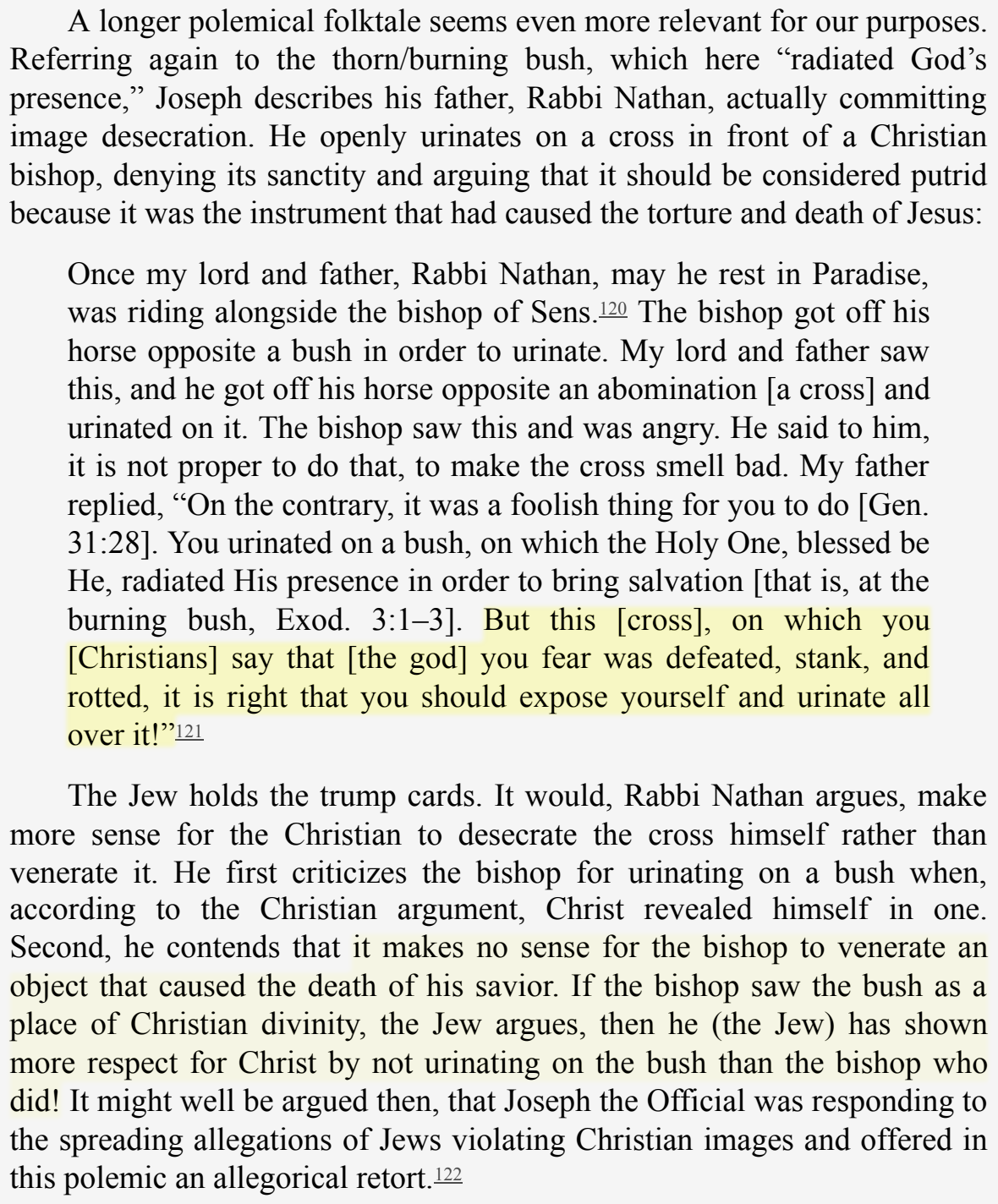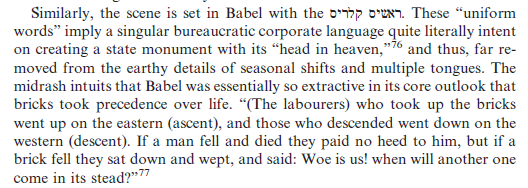cross‐posted (heh) from: https://lemmygrad.ml/post/4960299
It was only one century ago that many would have been shocked to hear the phrase ‘Jesus was a Jew’, as it simply wasn’t something that ordinary churches enjoyed teaching. While a few premodern Christians (including the infamous Protestant pioneer Martin Luther, who responded with a massive wall of text after Jews kept telling him ‘nah, I’m good’) were aware of this knowledge, evidently nobody was really in the habit of emphasizing it either — quite the opposite of the current situation, where the phrase ‘Jesus was a Jew’ has become a cliché.
Since many churches considered anti‐Judaism part of their job, it made sense that they would have wanted to keep quiet about J.C.’s Jewish background, as it would have inevitably raised all sorts of awkward questions, e.g. ‘If Jesus was Jewish, why don’t we all convert to Judaism?’ However, since some Christians feel guilty about nearly two millennia of violent Christian anti‐Judaism, including the Shoah, and many other Christians want to show their support for Zionism, the teaching that J.C. was Jewish has switched from being an arcane detail to basic knowledge.
Now, certainly not all who repeat this trivia are directing it to Jews. In fact, a decade ago I usually saw it directed at blatantly antisemitic Christians, though I doubt that it was always persuasive (as one ‘political pastor’ painfully learned in 1939). This counterargument is also a little irksome in its own way, as J.C.’s Jewish background should not be the only, or even the main, reason why somebody should respect contemporary Jewish people. The paradox of Jews inspiring two overwhelmingly gentile faiths does fascinate me, but Jewish people have worth aside from that.
In any case, if you have been lurking Jewish communities for a while then you have likely noticed that when Jews mention this phrase, they tend to mention it unhappily. It isn’t just that the phrase has become cliché and pedantic, but mainly because the intentions behind it are almost always misguided. At best, telling Jews that J.C. was Jewish is only a quite minor, woefully inadequate way of expressing solidarity. At worst, it is an evasive rhetorical trick, basically the Christian equivalent to saying ‘I’m not racist, I have a black friend!’ or ‘I’m part Cherokee!’, hence why somebody deemed the phrase antisemitic. I find both of those authors harsh, personally, so this is my attempt at putting it more gently if anybody finds their tones too off‐putting.
While it delights me to see Christians who are sincerely interested in demonstrating solidarity with Jewish people, I suspect that all Jews would agree (for once) if I said that reminding others of J.C.’s Jewish background isn’t enough. Maybe better than nothing, but it still isn’t enough. How, then, should one go about it? Click here for my suggestions, zero of which involve supporting an antidemocratic régime! Evangelicals, take note! And if you want to discuss Christianity’s Jewish roots in a way that actually sounds sophisticated and interesting, Torah Praxis after 70 C.E.: Reading Matthew and Luke–Acts as Jewish Texts is arguably the way to get serious about understanding them. See? Christianity’s Jewish origins don’t have to sound like boring trivia!
If you tell a Jewish person that J.C. was a Jew, the politest response that you’ll get is simply ‘good for him’. Few people want to bluntly tell you ‘I don’t care’, let alone patiently and respectfully explain to a stranger why they find this knowledge irrelevant, so this my contribution for anybody who needed help. Hopefully I articulated this well!


